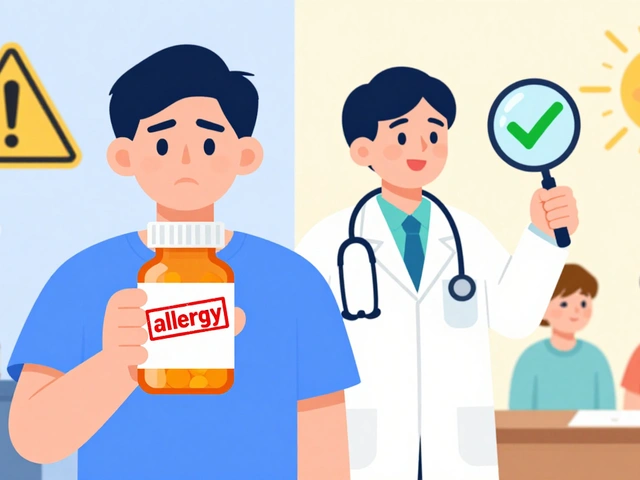Diabetes Medication: What’s Available and How to Choose
If you or someone you know lives with diabetes, the flood of medication names can feel overwhelming. The good news is that most drugs fall into a few clear groups, and understanding those groups helps you work with your doctor to find a plan that fits your life.
Common Types of Diabetes Medications
First up, insulin. It’s the oldest diabetes treatment and works by replacing the hormone your body can’t make or use properly. People with type 1 diabetes need it, and many with type 2 eventually add it when other pills aren’t enough. Insulin comes in short‑acting, intermediate, and long‑acting forms, so you can match the timing to meals and bedtime.
Next, oral medications. Metformin is the starter drug for most type 2 patients – it lowers glucose production in the liver and improves insulin sensitivity. If metformin alone isn’t enough, doctors may add sulfonylureas (like glipizide) which push the pancreas to release more insulin. Newer classes include SGLT2 inhibitors (canagliflozin, dapagliflozin) that help kidneys dump excess sugar, and GLP‑1 receptor agonists (exenatide, dulaglutide) that boost insulin after meals while also curbing appetite.
Each class has its own pros and cons. Insulin is powerful but can cause low blood sugar if dosing isn’t right. Metformin is cheap and well‑tolerated but can upset stomach. SGLT2 inhibitors may lower blood pressure and aid weight loss, yet they can increase risk of urinary infections. GLP‑1 drugs often promote weight loss and cardiovascular benefits, but they’re injected and can cause nausea. Knowing these trade‑offs helps you have a real conversation with your provider.
How to Choose the Right Medication for You
Start with your health goals. Want to lose weight? A GLP‑1 agonist or SGLT2 inhibitor might be a good match. Need a simple daily routine? Long‑acting basal insulin or a once‑daily oral pill could be easier than multiple injections.
Check your other conditions. If you have kidney disease, some SGLT2 drugs may be off‑limits, while others are actually protective. Heart disease? Certain SGLT2 inhibitors and GLP‑1 agents have proven heart‑health benefits. Talk to your doctor about any allergies, pregnancy plans, or cost concerns – insurance coverage varies a lot between drugs.
Monitoring is key. Whichever medication you start, keep a log of blood sugar readings, any side effects, and how you feel day‑to‑day. If you notice frequent lows, dizziness, or unexplained weight loss, contact your provider fast. Adjusting the dose or switching classes is normal; diabetes care is a moving target, not a one‑size‑fits‑all.
Finally, remember that meds work best with lifestyle moves. A balanced diet, regular exercise, and proper sleep can boost the effectiveness of any drug you’re taking. Think of medication as a tool in a toolbox – the more tools you have and know how to use, the easier it is to keep your blood sugar steady.
Bottom line: diabetes medication isn’t mysterious. By learning the main categories, weighing benefits against side effects, and partnering with your healthcare team, you can pick a regimen that fits your life and keeps your numbers in check.
Curious about Actos? Dive deep into this comprehensive guide on pioglitazone, a key medication for type 2 diabetes. Learn how Actos works, real-world tips for taking it, what the latest research says, side effects to watch for, and some surprising facts to keep you informed. This guide covers everything you need to make smart choices about your diabetes care.



 Medications
Medications




